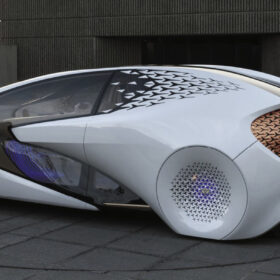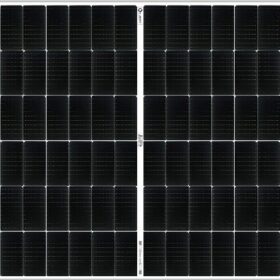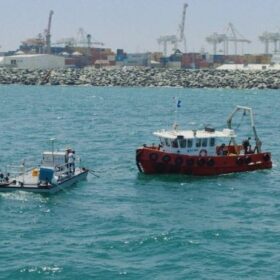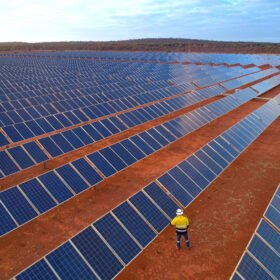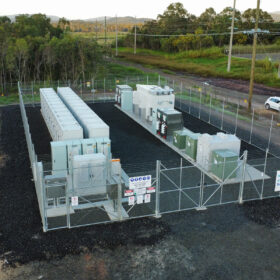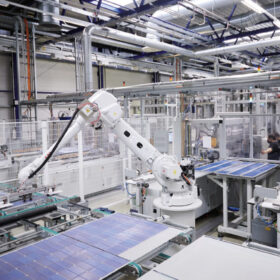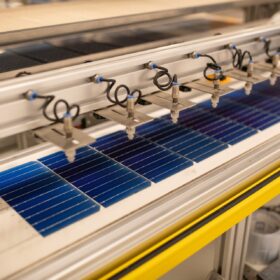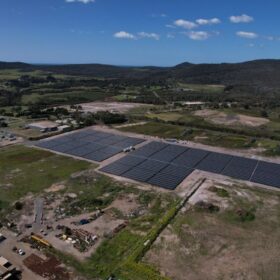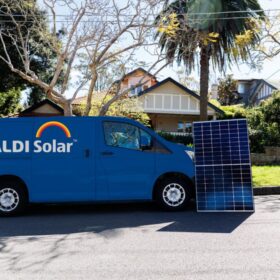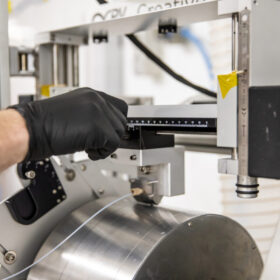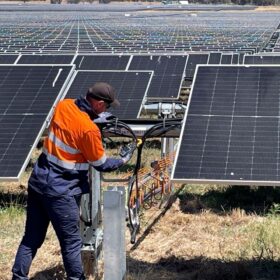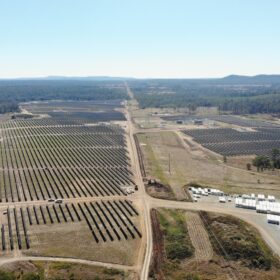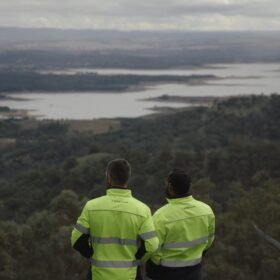New solid state battery charges in minutes, lasts for thousands of cycles
A team of researchers in the United States have developed a new lithium metal battery that can be charged and discharged at least 6,000 times — more than any other pouch battery cell — and can be recharged in a matter of minutes.
Bluebird Solar unveils M10 half-cut PV modules
Bluebird Solar has developed half-cut mono passivated emitter and rear contact (PERC) solar modules based on M10-sized cells. The modules are available with outputs ranging from 400 W to 550 W.
Carnegie trials ocean energy technology in offshore setting
Western Australian renewables company Carnegie Clean Energy has launched an offshore trial of its ocean energy generation technology as it seeks to advance the development of a wave converter system specifically designed for offshore energy demand applications.
DeGrussa solar and battery hub labelled ‘brilliant success’ as decommissioning begins
The largest integrated off-grid solar and battery storage facility in Australia when it was deployed, the DeGrussa solar and battery hub in remote Western Australia has reached end of life with asset owner Neoen confirming it is now planning to remove the more than 34,000 solar panels and rehabilitate the site.
Queensland builds on statewide network-connected battery program
A dozen new large-scale, network-connected batteries with a combined capacity of 48 MW / 96 MWh will be rolled out across Queensland as part of the state government’s strategy to support the continuing uptake of renewable energy and take the heat out of peak demand periods.
Meyer Burger to cease PV module production in Germany
Heterojunction cell and panel manufacturer Meyer Burger says it will stop making PV modules in Germany, but it will continue to produce solar cells in the country to support its panel production operations in the United States.
Time for a manufacturing renaissance, powered by renewables
With small policy adjustments, Australia can enjoy a manufacturing renaissance that delivers jobs, growth and emissions reductions.
Climate Capital achieves Tasmanian first with large-scale solar
The largest solar farm yet built in Tasmania is now online with developer and asset owner Climate Capital confirming that its 4.95 MW Bell Bay Solar Farm is officially exporting renewable electricity to the grid.
Amp Energy buys time for South Australian green hydrogen project
Canadian renewable energy company Amp Energy will push ahead with plans to develop and build a green hydrogen project with up to 10 GW of electrolyser capacity in South Australia after extending its exclusive lead developer deal with Australian minerals company Iron Road.
Governments unite with $206 million clean energy initiative
The Commonwealth and New South Wales governments have announced a $206 million package aimed at funding energy saving upgrades in social housing properties and increasing access to solar for low-income renters and apartment residents across the state.
